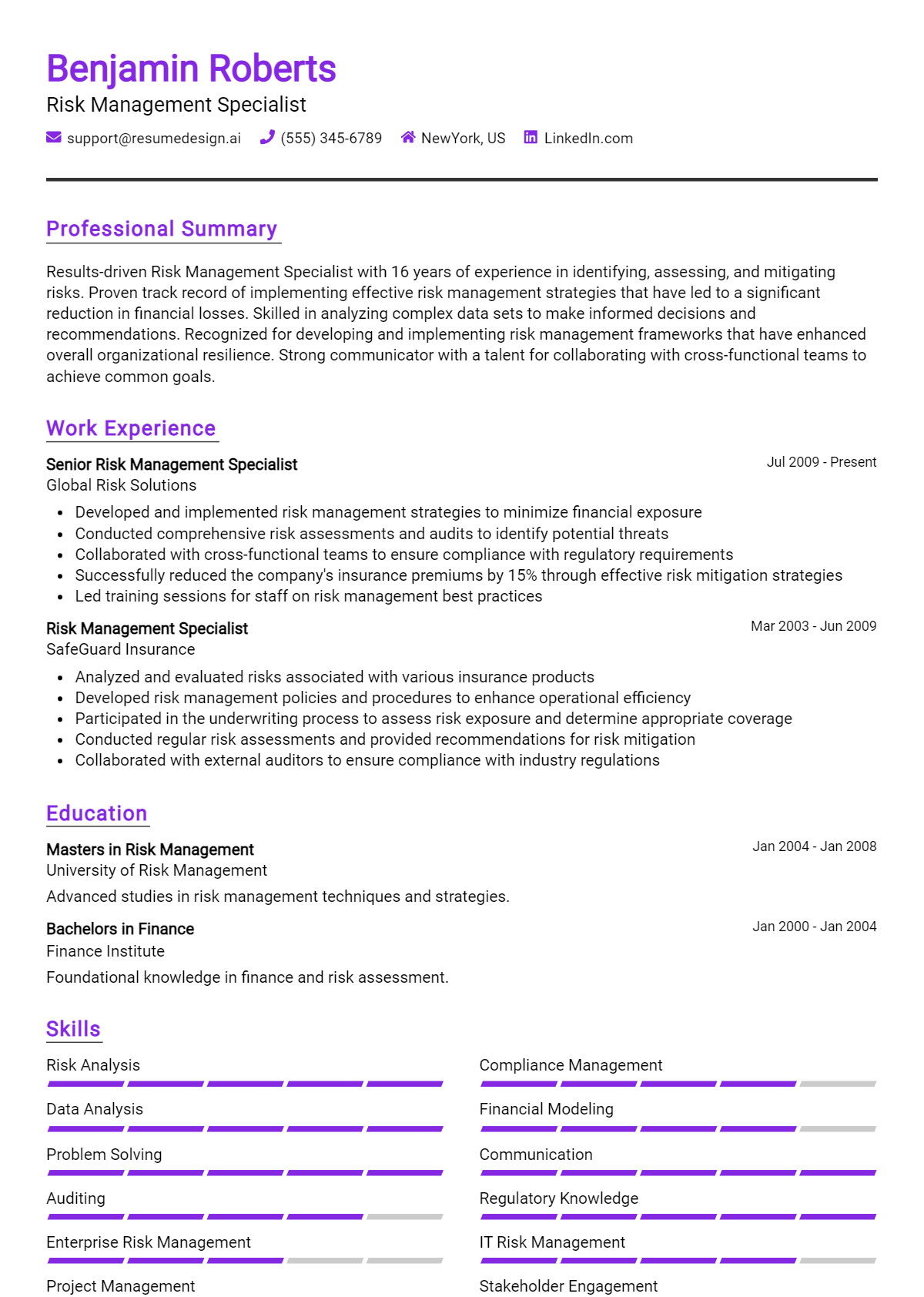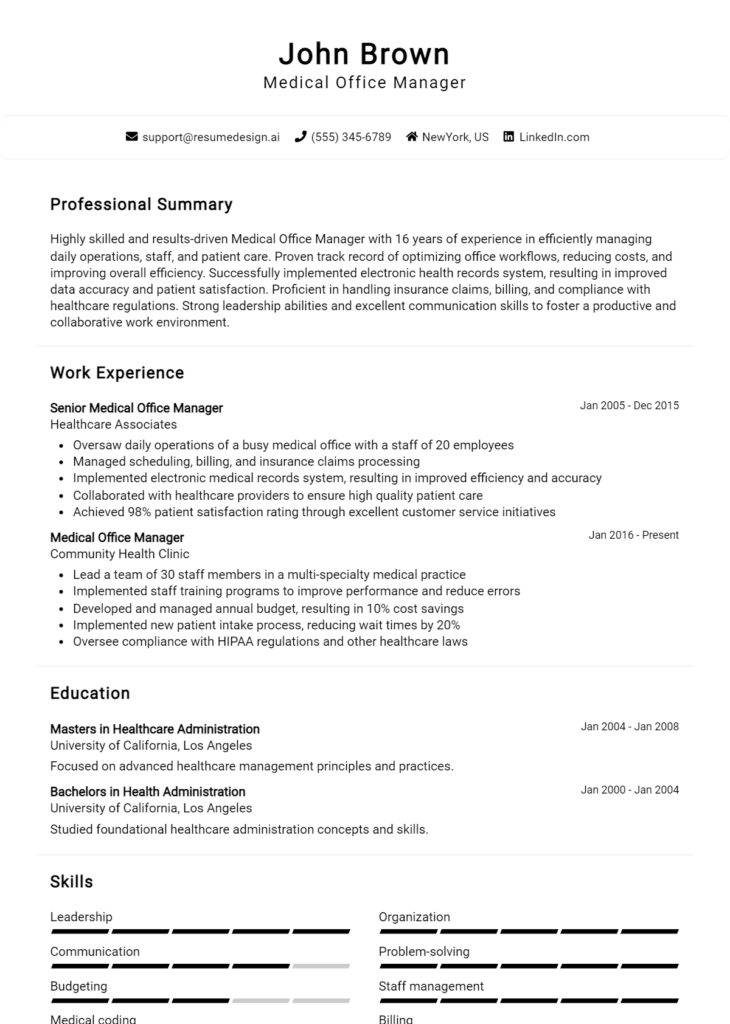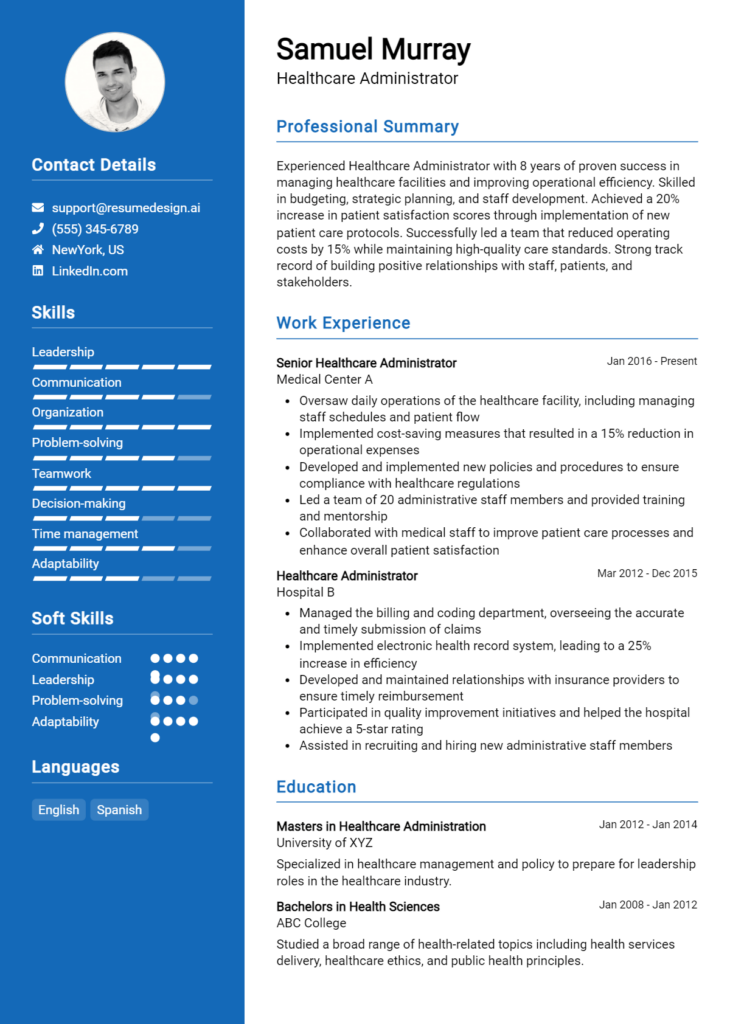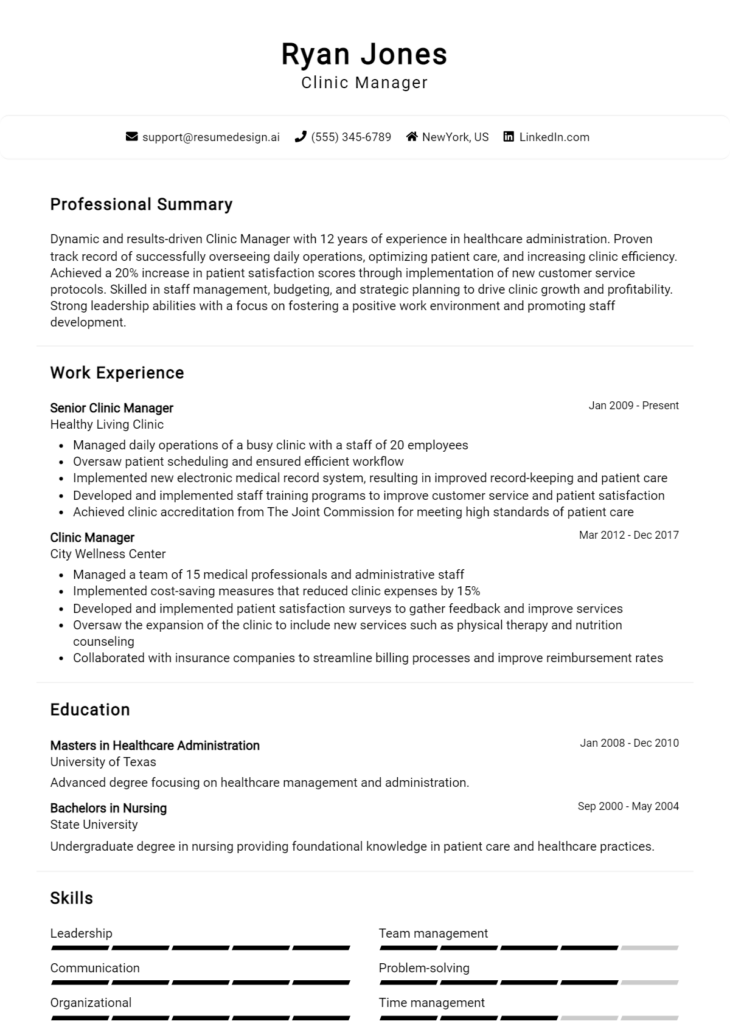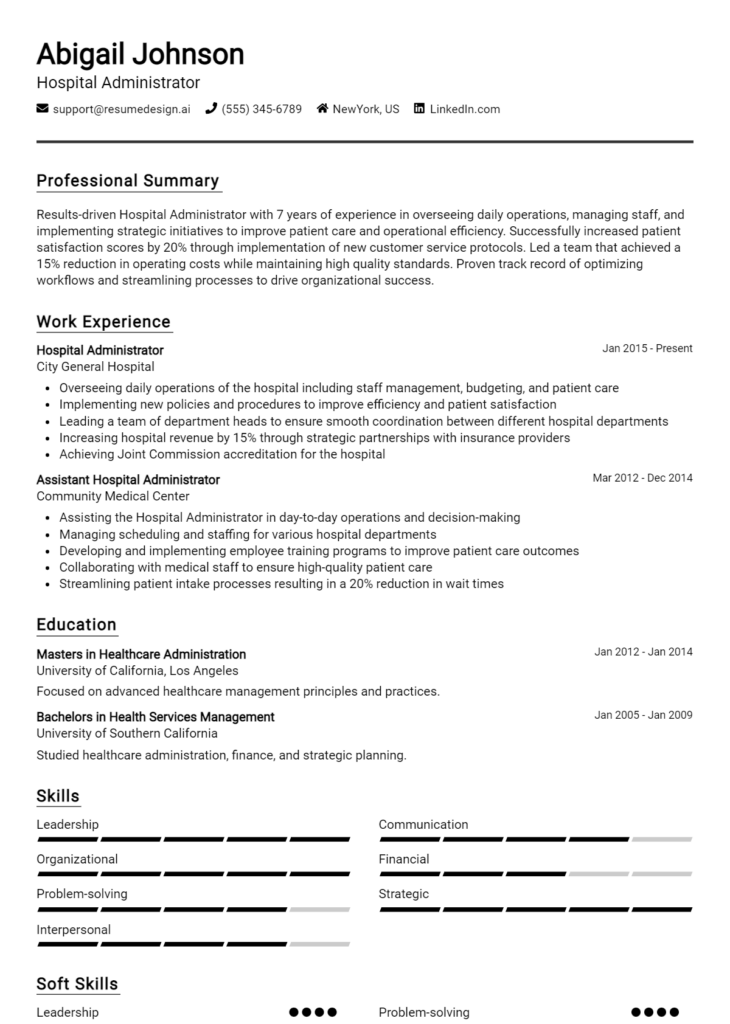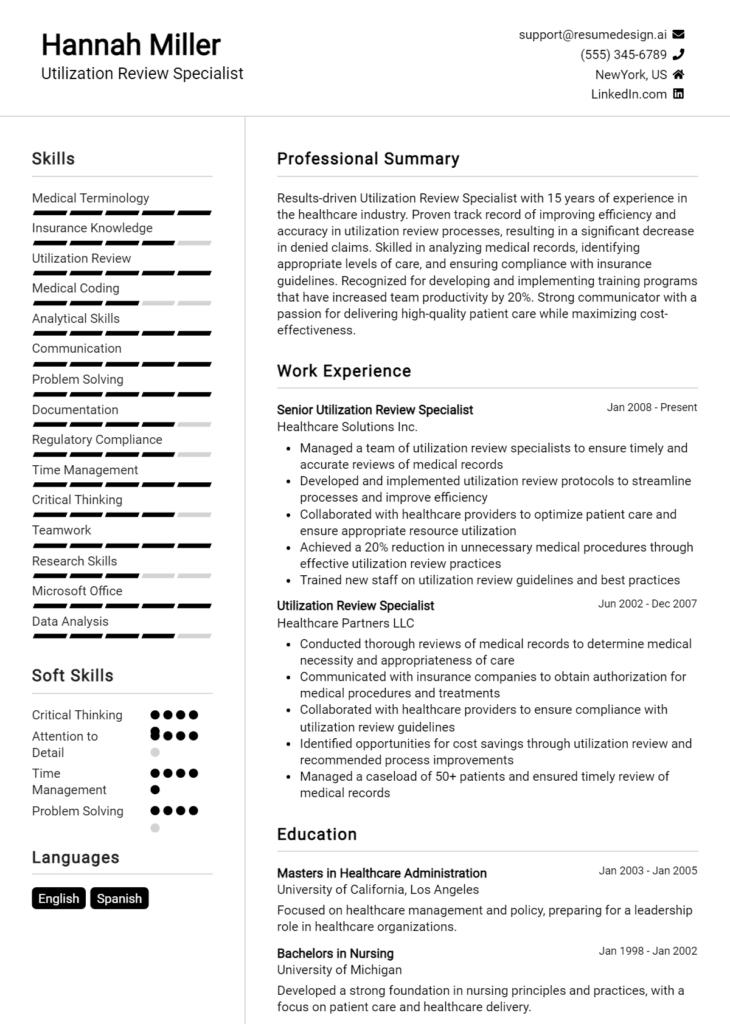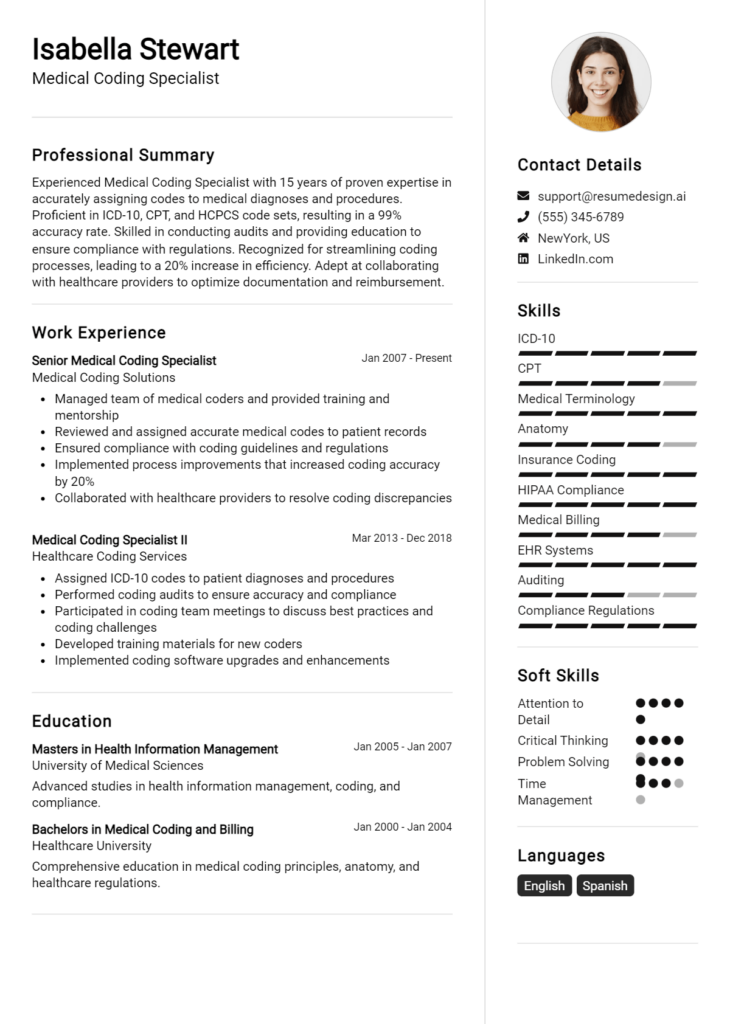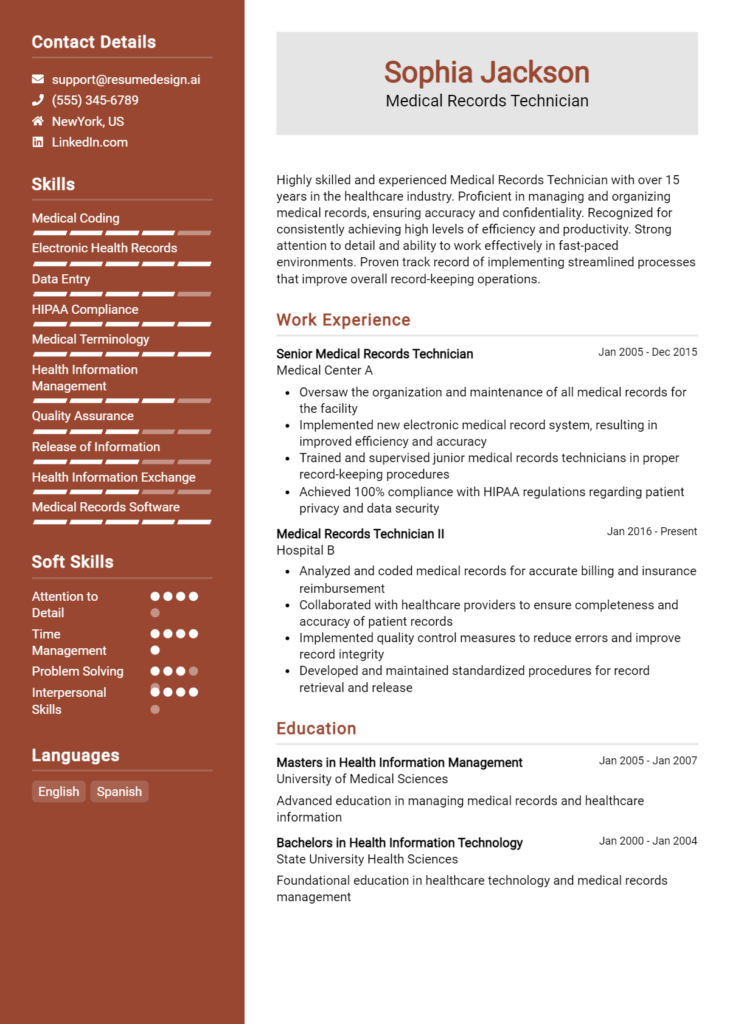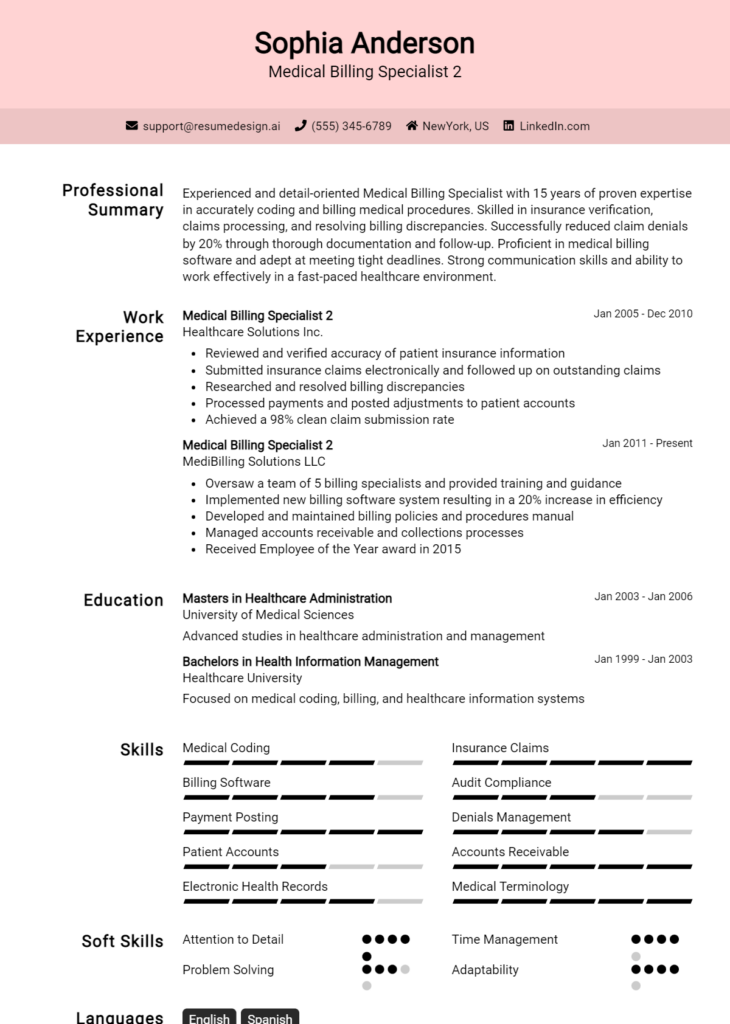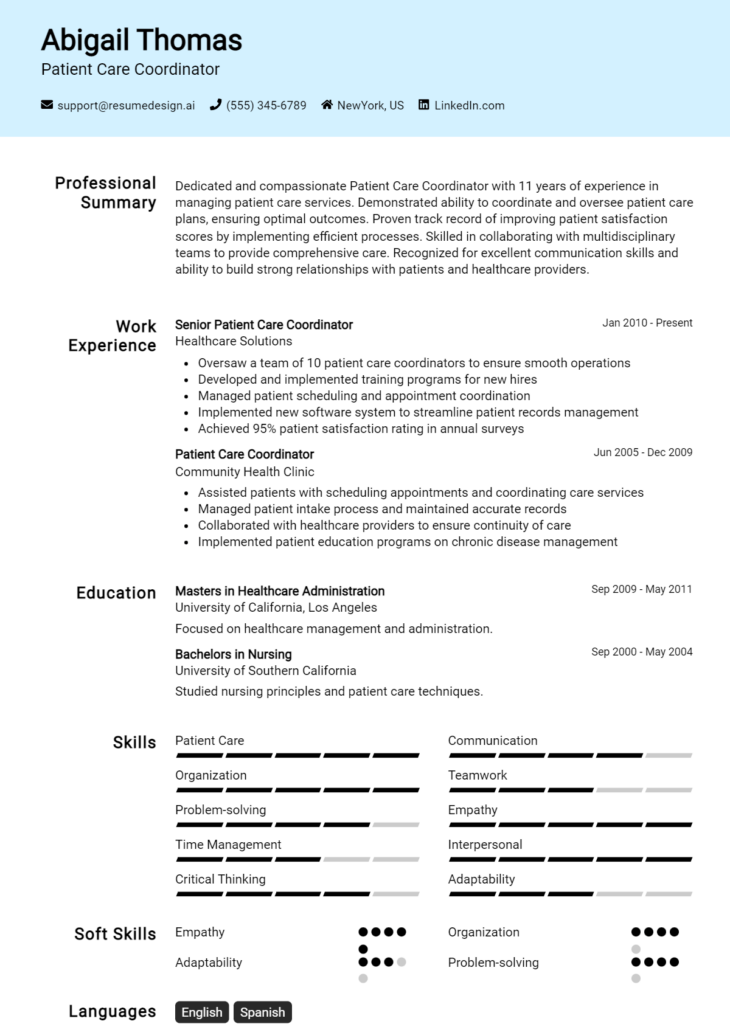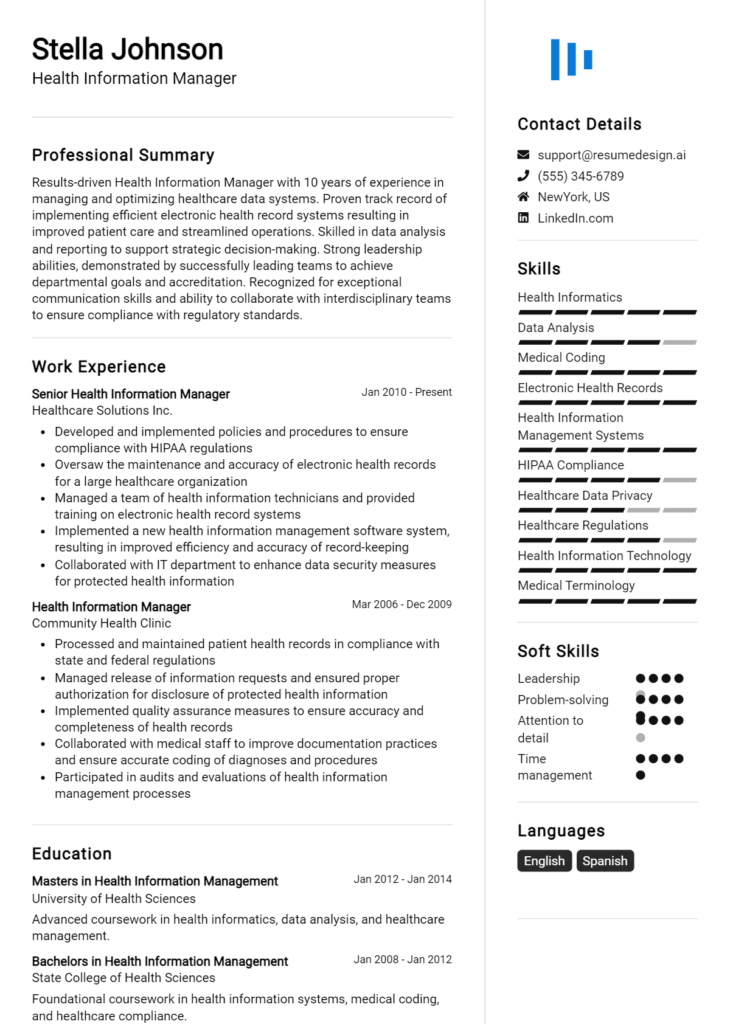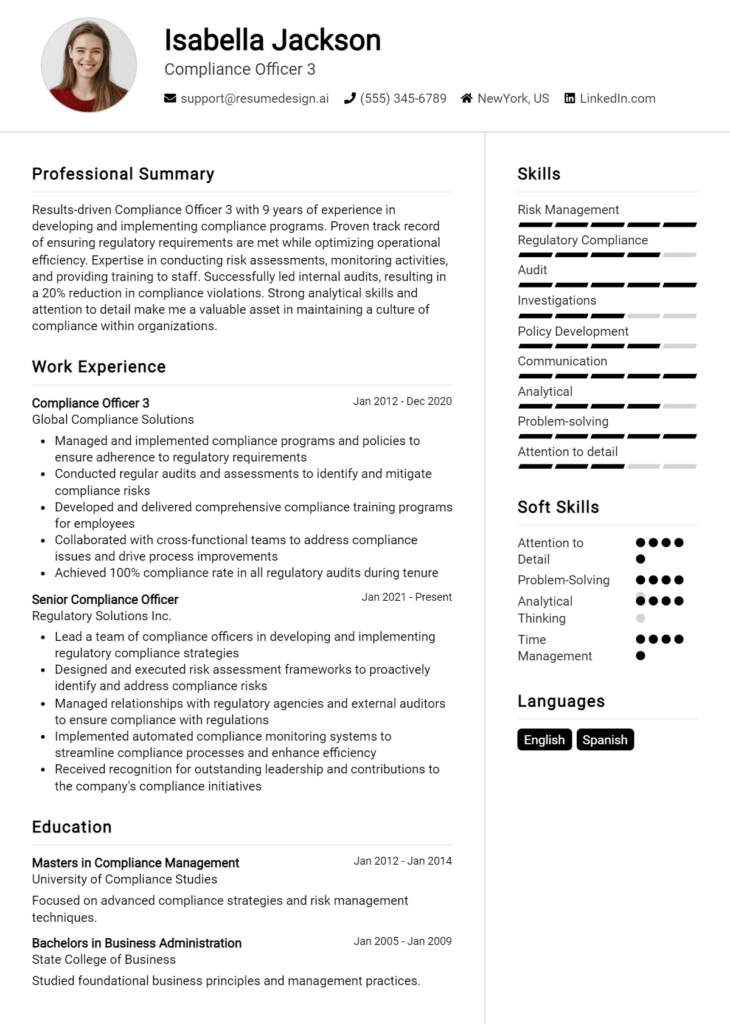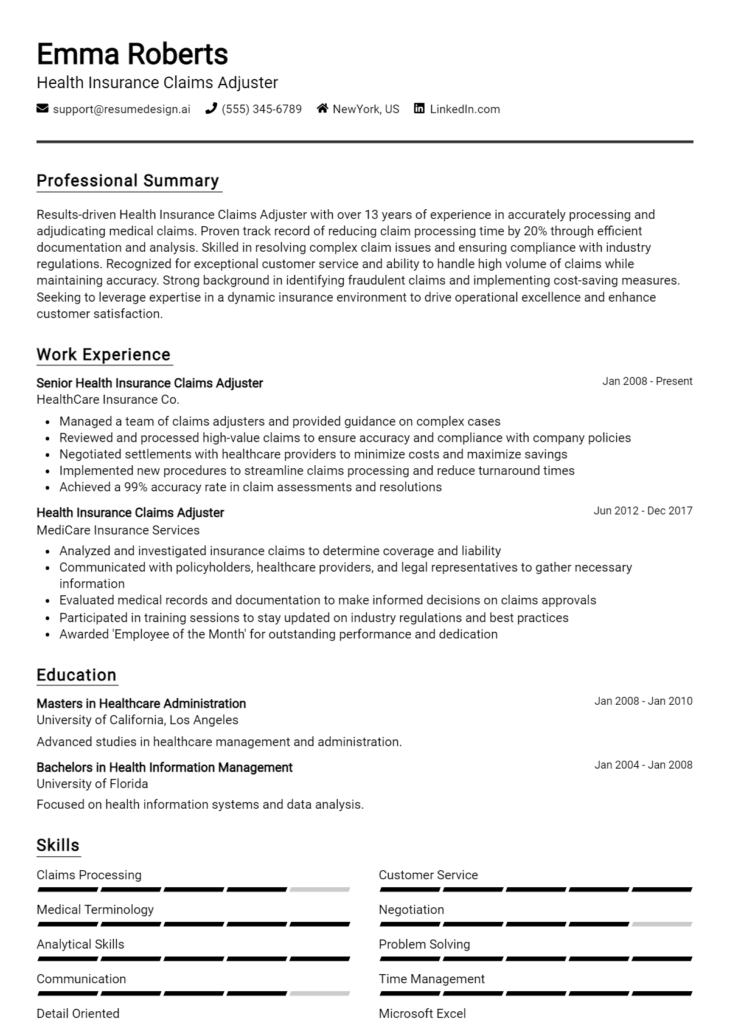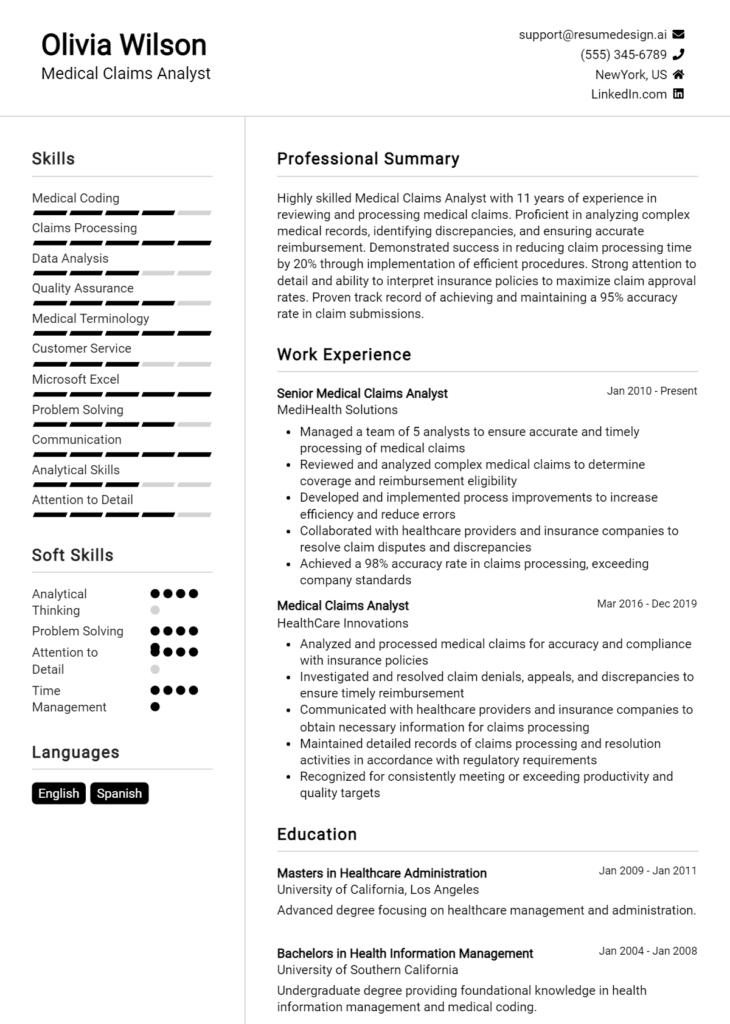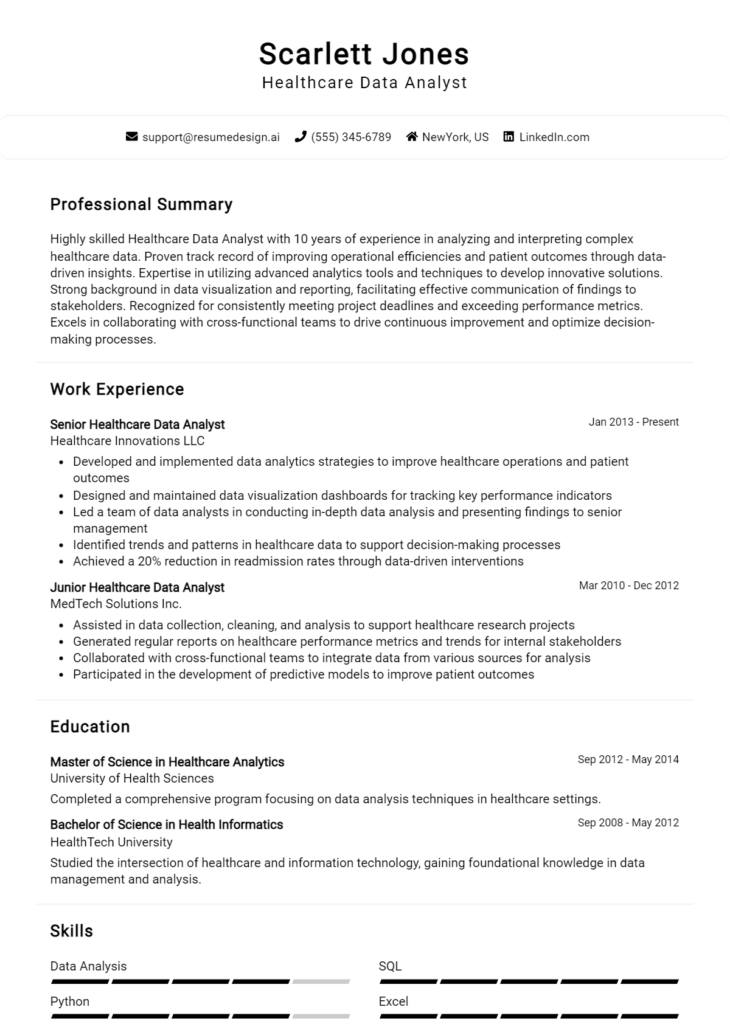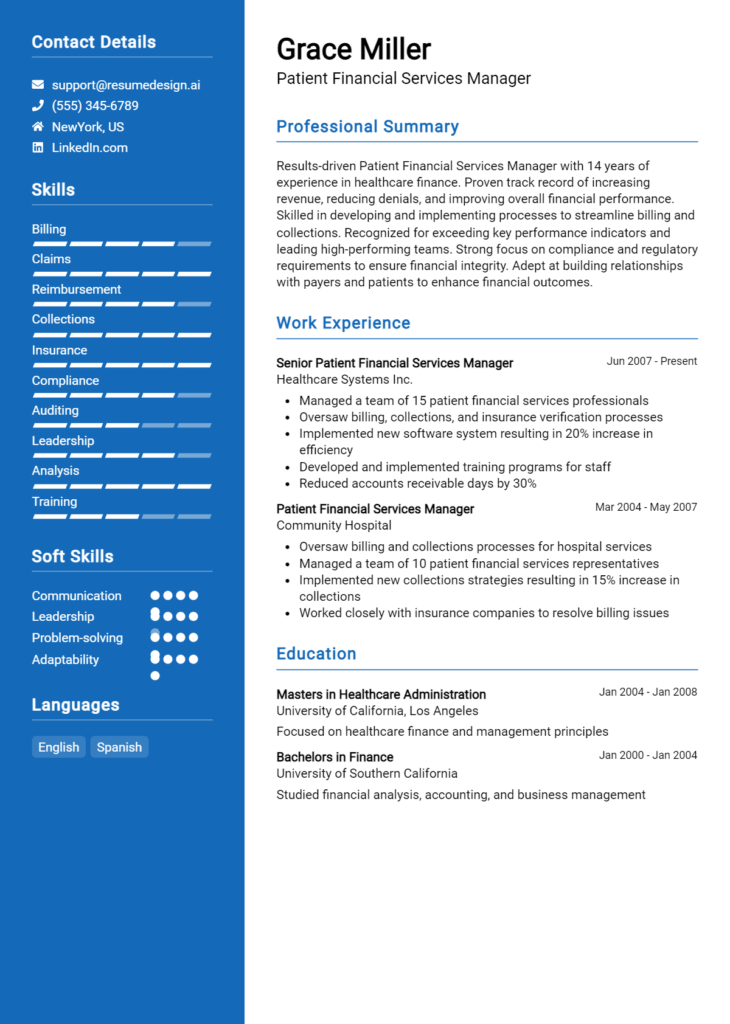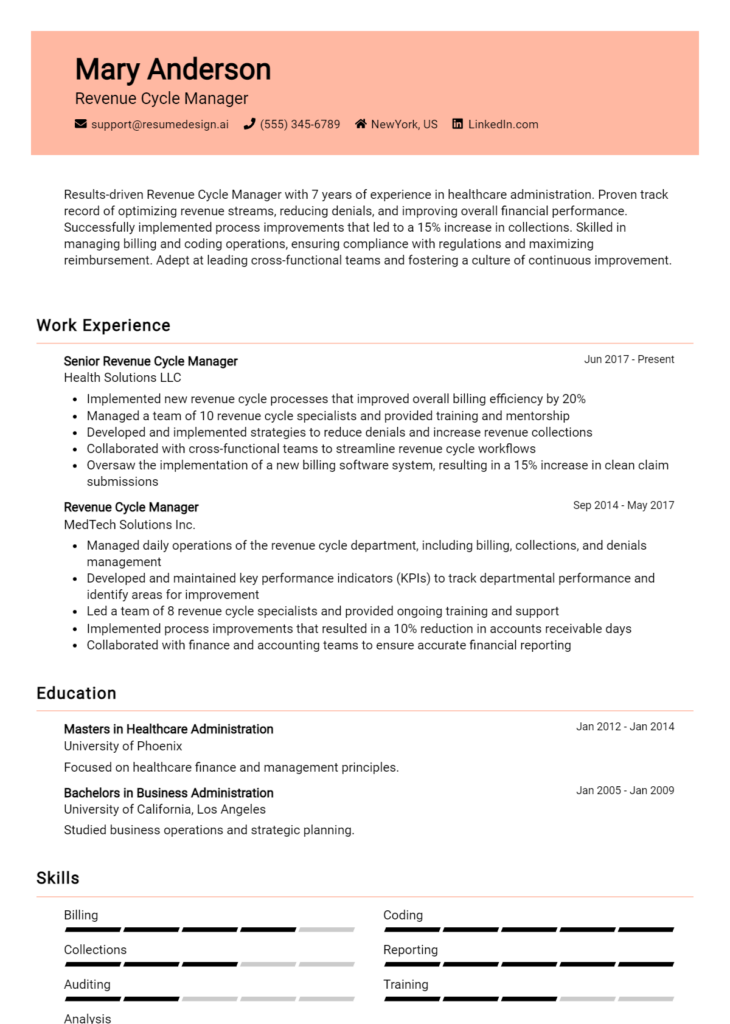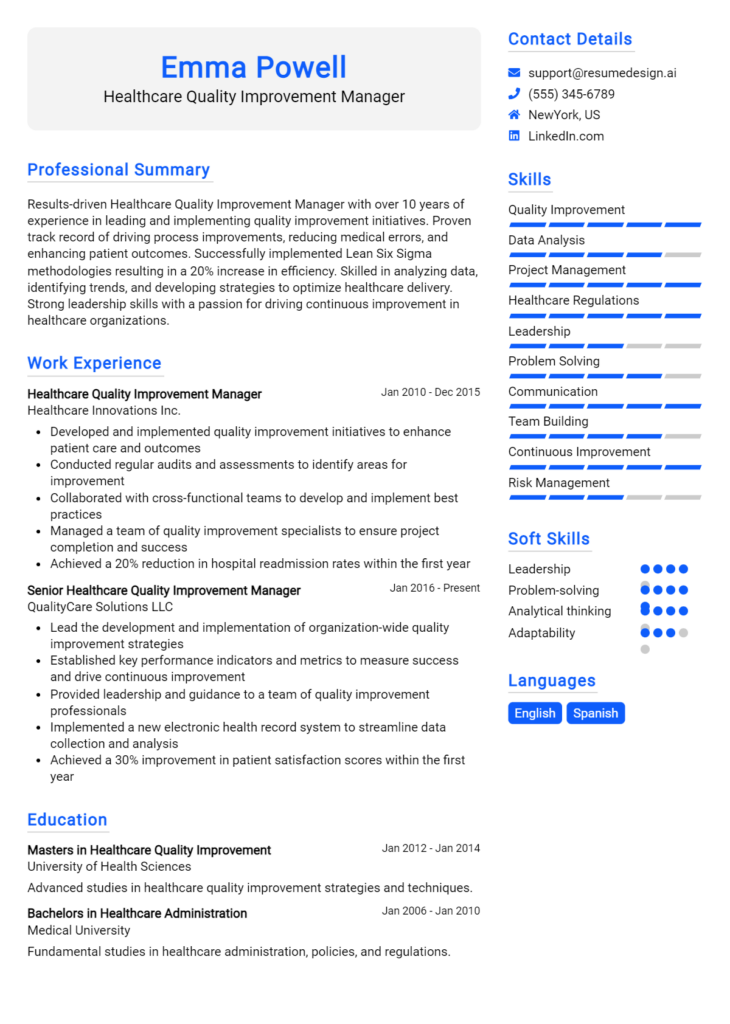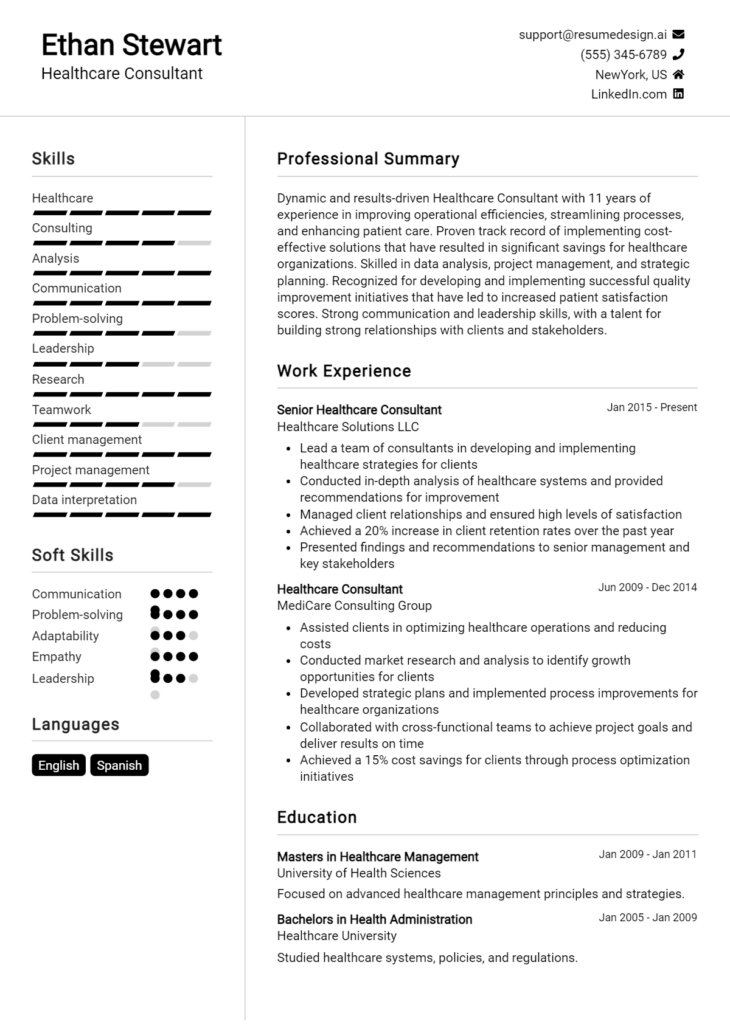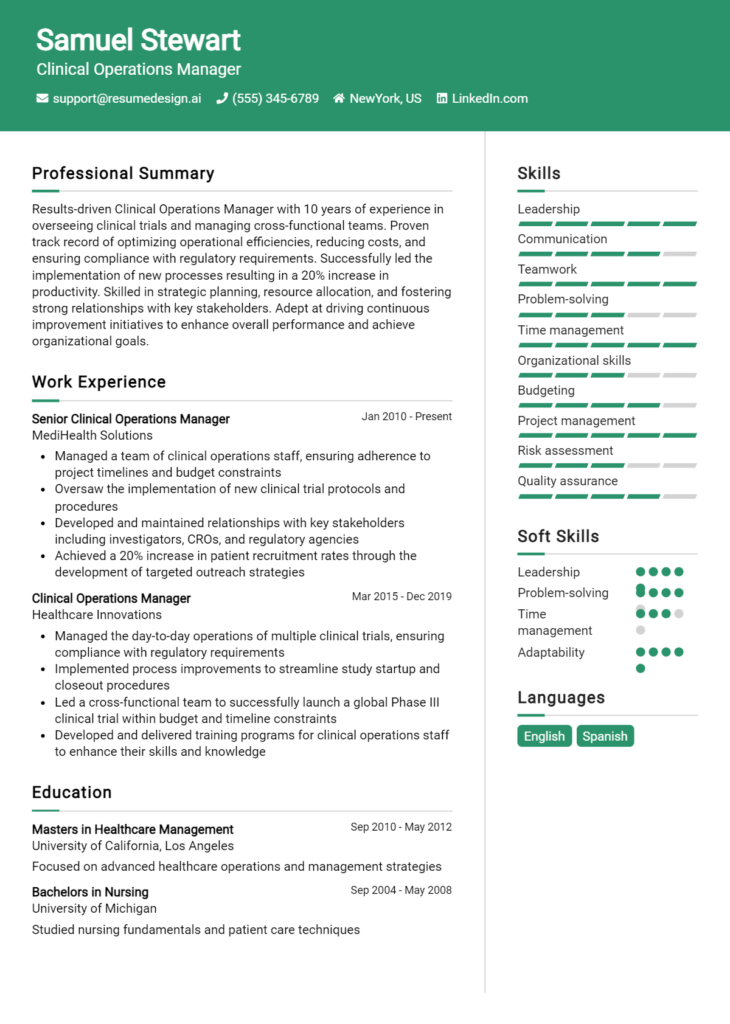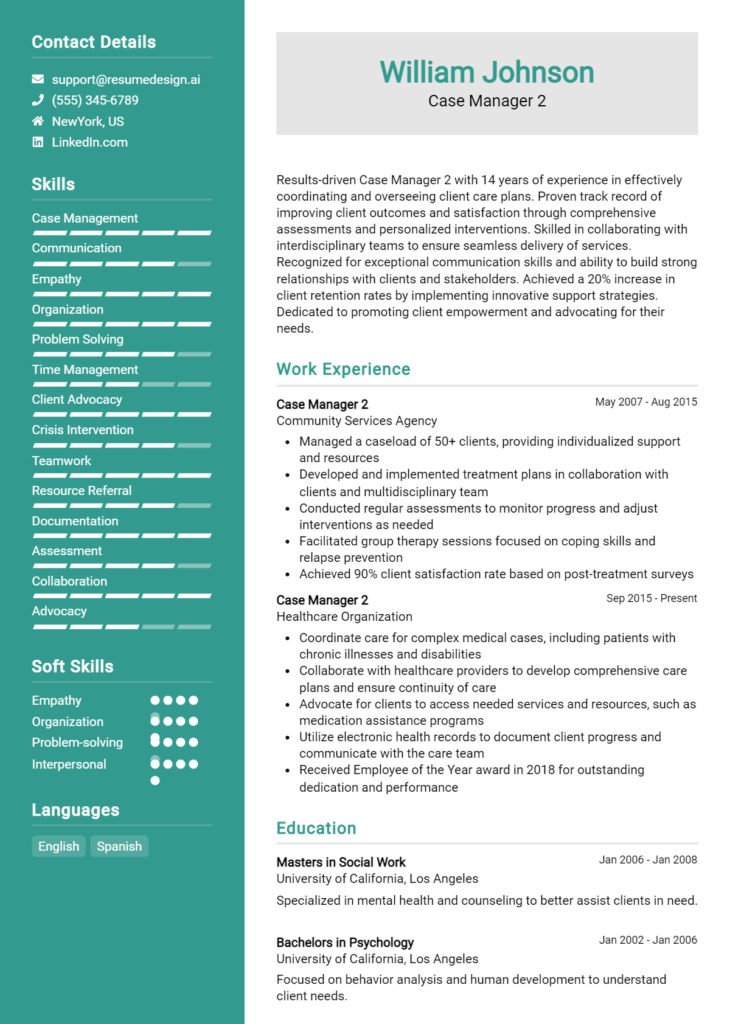Risk Management Specialist Core Responsibilities
A Risk Management Specialist plays a crucial role in identifying, assessing, and mitigating risks that could impact an organization's operations and objectives. This professional must possess strong technical, operational, and problem-solving skills to analyze complex data, develop risk management strategies, and collaborate across departments such as finance, compliance, and operations. Their expertise contributes significantly to the organization's overall goals by ensuring sustainability and compliance. A well-structured resume can effectively highlight these qualifications, showcasing the candidate's ability to bridge gaps between various functions.
Common Responsibilities Listed on Risk Management Specialist Resume
- Identify and assess potential risks that could impact the organization.
- Develop and implement risk management strategies and policies.
- Collaborate with various departments to ensure compliance with regulations.
- Conduct regular risk assessments and audits.
- Prepare reports and presentations on risk management activities.
- Monitor and analyze risk trends and emerging threats.
- Provide training and guidance to staff on risk management practices.
- Maintain risk management software and databases.
- Support incident response planning and business continuity strategies.
- Engage in stakeholder communication regarding risk-related issues.
- Evaluate insurance policies and coverage for risk mitigation.
- Stay updated on industry trends and regulatory changes affecting risk management.
High-Level Resume Tips for Risk Management Specialist Professionals
In today's competitive job market, a well-crafted resume is crucial for Risk Management Specialist professionals looking to stand out to potential employers. Your resume is often the first impression you make, serving as a marketing tool that needs to effectively showcase your skills, expertise, and achievements within the field of risk management. It's not just about listing job responsibilities; it's about demonstrating how your unique contributions can add value to an organization. This guide provides practical and actionable resume tips specifically tailored for Risk Management Specialist professionals, helping you to create a compelling narrative that resonates with hiring managers.
Top Resume Tips for Risk Management Specialist Professionals
- Tailor your resume to align with the job description by incorporating relevant keywords and phrases.
- Highlight your relevant experience in risk assessment, compliance, and mitigation strategies.
- Quantify your achievements with specific metrics, such as reduced losses or improved compliance rates.
- Include industry-specific certifications, such as Certified Risk Management Professional (CRMP) or Risk Management Professional (PMI-RMP).
- Showcase your analytical skills by providing examples of data analysis and decision-making processes.
- Detail your experience with risk management software and tools that are commonly used in the industry.
- Emphasize your ability to communicate effectively, both verbally and in writing, as this is crucial for stakeholder engagement.
- Incorporate soft skills, such as problem-solving and leadership, that are essential for managing risk in teams.
- Consider including a professional summary at the top of your resume that encapsulates your expertise and career goals.
By implementing these tips, you can significantly enhance your chances of landing a job in the Risk Management Specialist field. A targeted and well-structured resume not only showcases your qualifications but also communicates your value proposition to potential employers, making you a more attractive candidate in a competitive landscape.
Why Resume Headlines & Titles are Important for Risk Management Specialist
In the competitive landscape of risk management, a well-crafted resume headline or title is crucial for a Risk Management Specialist. It serves as the first impression for hiring managers, summarizing a candidate's key qualifications in a single impactful phrase. A strong headline can immediately grab attention, setting the tone for the rest of the resume and compelling employers to delve deeper. The headline should be concise, relevant, and directly aligned with the job being applied for, ensuring it resonates with the specific needs of the organization.
Best Practices for Crafting Resume Headlines for Risk Management Specialist
- Keep it concise: Aim for a headline that is no longer than one or two lines.
- Be role-specific: Use industry-specific terminology to highlight your expertise in risk management.
- Highlight key qualifications: Focus on your most relevant skills, certifications, or experiences.
- Use action-oriented language: Start with strong verbs to convey your proactive approach to risk management.
- Tailor to the job: Customize your headline for each application to align with the job description.
- Incorporate measurable achievements: If possible, include quantifiable successes that demonstrate your impact.
- Avoid jargon: While industry terms are important, ensure that your headline is easily understood.
- Showcase your value: Clearly communicate what sets you apart from other candidates.
Example Resume Headlines for Risk Management Specialist
Strong Resume Headlines
"Certified Risk Management Specialist with 10+ Years in Financial Services"
“Proven Track Record in Mitigating Risk and Enhancing Compliance Strategies”
“Dynamic Risk Analyst Specializing in Data-Driven Decision Making”
“Expert in Enterprise Risk Management with a Focus on Operational Excellence”
Weak Resume Headlines
“Risk Management Professional”
“Experienced Worker in the Finance Sector”
The strong headlines are effective because they are specific, showcasing relevant skills and experiences that directly speak to the needs of hiring managers. Each one conveys a clear sense of expertise and achievement, immediately positioning the candidate as a strong contender. In contrast, the weak headlines lack detail and fail to differentiate the candidate, making them generic and forgettable. By avoiding ambiguity and emphasizing unique qualifications, strong headlines create a compelling case for the candidate's candidacy.
Writing an Exceptional Risk Management Specialist Resume Summary
A well-crafted resume summary is crucial for a Risk Management Specialist as it serves as the first impression for hiring managers. This brief yet impactful paragraph highlights the candidate's key skills, relevant experience, and notable accomplishments, allowing them to quickly grasp the applicant's suitability for the role. A strong summary not only captures attention but also sets the tone for the rest of the resume, making it essential to be concise, impactful, and specifically tailored to the job being applied for.
Best Practices for Writing a Risk Management Specialist Resume Summary
- Quantify achievements to demonstrate impact, such as percentage reductions in risk or savings generated.
- Focus on relevant skills that align with the job description, such as risk assessment, regulatory compliance, and data analysis.
- Tailor the summary for each application by incorporating keywords from the job posting.
- Keep it concise, ideally within 3-5 sentences, to maintain the reader's attention.
- Highlight specific accomplishments that showcase your expertise and value to potential employers.
- Use action-oriented language to convey confidence and proactivity in your approach to risk management.
- Avoid generic statements; be specific about your unique contributions and experiences.
- Include certifications or specialized training relevant to the field, which can enhance credibility.
Example Risk Management Specialist Resume Summaries
Strong Resume Summaries
Dynamic Risk Management Specialist with over 7 years of experience in identifying, analyzing, and mitigating risks in financial services. Achieved a 30% reduction in operational risk through the implementation of a comprehensive risk assessment framework, ensuring compliance with industry regulations.
Results-driven Risk Management Professional skilled in developing risk management strategies that align with organizational goals. Successfully minimized risks by 25% over two years by introducing data-driven decision-making processes and enhancing risk reporting mechanisms.
Proficient Risk Management Specialist with a track record of improving compliance rates by 40% through effective training programs and risk awareness initiatives. Adept at utilizing advanced analytical tools to assess potential risks and formulate actionable strategies.
Weak Resume Summaries
Experienced professional in risk management looking for opportunities to leverage skills in a new role.
Dedicated Risk Management Specialist with knowledge in various areas but no specific accomplishments to share.
The examples labeled as strong summaries effectively highlight quantifiable achievements, specific skills, and directly relevant experiences that demonstrate the candidate's value to potential employers. In contrast, the weak summaries lack specificity and measurable outcomes, making them less impactful and memorable, thereby failing to capture the interest of hiring managers.
Work Experience Section for Risk Management Specialist Resume
The work experience section is a critical component of a Risk Management Specialist's resume, as it serves as a comprehensive showcase of the candidate's technical skills, leadership capabilities, and ability to deliver high-quality results. This section not only highlights the specific roles and responsibilities undertaken but also emphasizes quantifiable achievements that align with industry standards. By effectively detailing past experiences, candidates can illustrate their proficiency in identifying risks, developing mitigation strategies, and leading teams to achieve organizational goals. A well-structured work experience section is essential for demonstrating the candidate's value to potential employers.
Best Practices for Risk Management Specialist Work Experience
- Focus on quantifiable results to illustrate the impact of your contributions.
- Use industry-specific terminology to showcase your technical expertise.
- Highlight leadership roles and team management experiences.
- Detail specific risk management methodologies and tools used.
- Align experiences with industry standards and best practices.
- Incorporate relevant certifications and training to enhance credibility.
- Emphasize collaboration with cross-functional teams to achieve objectives.
- Keep descriptions concise and focused on outcomes rather than tasks.
Example Work Experiences for Risk Management Specialist
Strong Experiences
- Led a cross-functional team in the implementation of a new risk assessment framework, resulting in a 30% reduction in identified operational risks over one year.
- Developed and executed a comprehensive risk mitigation strategy for a major project, which improved project delivery timelines by 25% while maintaining compliance with industry regulations.
- Implemented advanced data analytics tools that increased the accuracy of risk forecasts by 40%, enhancing decision-making processes for senior management.
- Facilitated training sessions for over 100 employees on risk management best practices, fostering a culture of risk awareness which reduced incident reports by 15%.
Weak Experiences
- Worked on various risk assessments.
- Assisted in managing team projects.
- Helped develop risk reports.
- Participated in departmental meetings about risk management.
The examples provided illustrate a clear distinction between strong and weak experiences. Strong experiences are characterized by specific achievements that highlight quantifiable outcomes, technical leadership, and effective collaboration. They employ metrics to demonstrate impact and provide clarity on the candidate's role in driving results. In contrast, weak experiences are vague and lack measurable outcomes, failing to convey the candidate's contributions or the significance of their role in the risk management process. This emphasizes the importance of crafting detailed, results-oriented statements in the work experience section of a resume.
Education and Certifications Section for Risk Management Specialist Resume
The education and certifications section of a Risk Management Specialist resume is crucial in establishing the candidate's qualifications and expertise in the field. This section not only showcases the individual's academic background but also illustrates their commitment to continuous learning and professional development through industry-relevant certifications. By providing details on relevant coursework, specialized training, and recognized credentials, candidates can significantly enhance their credibility and demonstrate their alignment with the specific requirements of the job role, making them more appealing to potential employers.
Best Practices for Risk Management Specialist Education and Certifications
- List degrees and certifications that are directly relevant to risk management, finance, or related fields.
- Include the names of reputable institutions and organizations that confer your qualifications.
- Highlight any advanced certifications such as Certified Risk Manager (CRM) or Chartered Risk Analyst (CRA).
- Provide details of relevant coursework that demonstrates specialized knowledge in risk assessment and mitigation strategies.
- Include dates of completion to show that your education and certifications are up to date.
- Consider adding professional development courses or workshops that enhance your skills in risk management.
- Use bullet points for clarity and easy readability, ensuring that each entry is concise and informative.
- Ensure that all information is accurately represented and avoid exaggeration.
Example Education and Certifications for Risk Management Specialist
Strong Examples
- M.S. in Risk Management, University of Chicago, 2022
- Certified Risk Manager (CRM), Risk Management Society, 2023
- Graduate Certificate in Financial Risk Management, New York University, 2021
- Relevant Coursework: Advanced Risk Assessment Techniques, Enterprise Risk Management, and Quantitative Risk Analysis.
Weak Examples
- B.A. in History, State University, 2015
- Certification in Basic First Aid, Red Cross, 2019
- Online Course in Personal Finance, 2020
- High School Diploma, Local High School, 2010
The strong examples are considered effective because they directly relate to the skills and knowledge required for a Risk Management Specialist, showcasing advanced education and recognized certifications that are respected in the industry. In contrast, the weak examples fail to demonstrate relevant qualifications or expertise in risk management, making them less impressive to potential employers. They include outdated or unrelated educational experiences that do not contribute to the candidate's suitability for the role.
Top Skills & Keywords for Risk Management Specialist Resume
A well-crafted resume is crucial for a Risk Management Specialist, as it serves as a personal marketing tool that highlights your qualifications and expertise in mitigating risks. Emphasizing the right blend of skills can set you apart in a competitive job market. Employers seek candidates who not only possess the technical knowledge to identify and analyze potential risks but also exhibit strong interpersonal skills to communicate effectively across departments. By showcasing both hard and soft skills relevant to risk management, you can create a compelling narrative that underscores your value to potential employers.
Top Hard & Soft Skills for Risk Management Specialist
Soft Skills
- Analytical Thinking
- Problem-Solving
- Communication Skills
- Attention to Detail
- Team Collaboration
- Adaptability
- Time Management
- Negotiation Skills
- Decision-Making
- Leadership
Hard Skills
- Risk Assessment and Analysis
- Regulatory Compliance
- Data Analysis and Interpretation
- Financial Acumen
- Statistical Modeling
- Risk Mitigation Strategies
- Project Management
- Proficiency in Risk Management Software
- Knowledge of ISO Standards
- Crisis Management
By focusing on these skills in your resume, along with relevant work experience, you can effectively demonstrate your qualifications and readiness for a role as a Risk Management Specialist.
Stand Out with a Winning Risk Management Specialist Cover Letter
As a dedicated Risk Management Specialist with over five years of experience in identifying and mitigating potential risks within various organizations, I am excited to apply for the position at [Company Name]. My background in financial analysis and regulatory compliance has equipped me with the skills necessary to develop and implement effective risk management strategies. I am particularly drawn to [Company Name] because of its commitment to innovation and excellence in the industry, and I am eager to contribute to its ongoing success by enhancing its risk management processes.
In my previous role at [Previous Company Name], I successfully led a project that involved conducting comprehensive risk assessments across multiple departments. This initiative resulted in the identification of critical vulnerabilities that, when addressed, decreased potential losses by 30% within the first year. My ability to collaborate with cross-functional teams and communicate complex risk concepts to non-specialists has been instrumental in fostering a risk-aware culture throughout the organization. I am adept at utilizing various risk assessment tools and methodologies, which I believe will be beneficial in navigating the challenges faced by [Company Name].
I am particularly skilled in analyzing market trends and regulatory changes to proactively identify emerging risks. My attention to detail and analytical mindset enable me to develop actionable recommendations that align with organizational goals while ensuring compliance with industry standards. I am a firm believer in continuous improvement and am always seeking opportunities for professional development. I am excited about the possibility of bringing my expertise in risk management to [Company Name] and collaborating with your talented team to implement innovative solutions that protect the company's assets and reputation.
Thank you for considering my application. I look forward to the opportunity to further discuss how my skills and experiences align with the goals of [Company Name]. I am eager to contribute to your team and help drive effective risk management practices that will position the company for continued growth and success.
Common Mistakes to Avoid in a Risk Management Specialist Resume
When crafting a resume for a Risk Management Specialist position, it's essential to present your qualifications and experiences effectively to stand out in a competitive job market. However, many candidates make common mistakes that can undermine their chances of landing an interview. Understanding these pitfalls can help you create a compelling resume that showcases your skills while avoiding common errors that may detract from your overall presentation.
Vague Job Descriptions: Failing to provide specific details about previous roles can make it difficult for employers to gauge your expertise. Use quantifiable achievements to demonstrate your impact.
Ignoring Industry Keywords: Not incorporating relevant keywords from the job description can lead to your resume being overlooked by applicant tracking systems. Tailor your resume to each position you apply for.
Overloading with Jargon: Using excessive technical jargon without clarity can alienate hiring managers. Aim for a balance that showcases your expertise while remaining accessible.
Neglecting Soft Skills: Focusing solely on technical skills and neglecting soft skills like communication and leadership can give a skewed perception of your capabilities. Highlight interpersonal skills that are crucial for effective risk management.
Inconsistent Formatting: A resume that lacks consistent formatting can appear unprofessional. Ensure that fonts, bullet points, and spacing are uniform throughout the document for a polished look.
Lengthy Resumes: Cramming too much information into your resume can overwhelm readers. Aim for concise content that highlights your most relevant experiences, ideally keeping it to one or two pages.
Failing to Customize for Each Application: Sending out a generic resume can lessen your appeal to potential employers. Tailor your resume for each role, emphasizing the skills and experiences that align with the specific job requirements.
Omitting Relevant Certifications: Risk management often requires specific certifications (e.g., FRM, CRM). Not mentioning these qualifications can be a missed opportunity to showcase your professional development and commitment to the field.
Conclusion
As a Risk Management Specialist, your role is crucial in identifying, assessing, and mitigating risks that could potentially impact an organization's operations and financial health. Key responsibilities include conducting risk assessments, developing risk management strategies, and ensuring compliance with regulations. Your expertise in analyzing data and implementing effective risk control measures can help safeguard your organization against unexpected events and enhance its resilience.
In today's competitive job market, having a well-crafted resume that showcases your skills, experience, and accomplishments is essential. It is important to highlight your analytical skills, knowledge of risk management frameworks, and your ability to communicate risk-related information effectively. Utilizing the right tools can significantly enhance your job application process.
We encourage you to take a moment to review your Risk Management Specialist resume and ensure it accurately reflects your qualifications. By enhancing your resume, you can increase your chances of standing out to potential employers. Explore the following resources to aid in your resume development:
- Resume Templates to find a design that suits your style and experience.
- Resume Builder to create a professional resume step-by-step.
- Resume Examples for inspiration and guidance on how to format and present your information effectively.
- Cover Letter Templates to accompany your resume and make a strong first impression.
Investing time in refining your resume can open doors to exciting job opportunities in the field of risk management. Don’t wait—start enhancing your application today!

